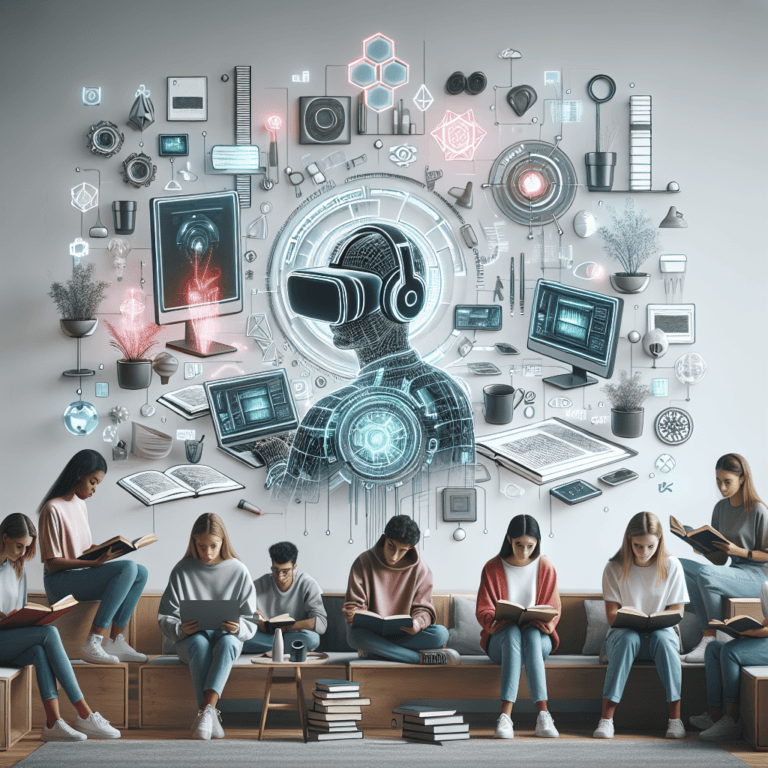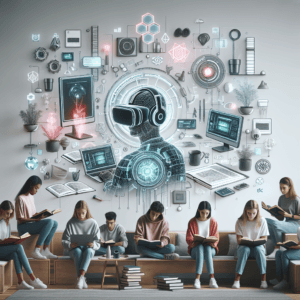Transforming Learning: The Future of Online Education for Students
The landscape of education has undergone a significant transformation in recent years, particularly with the increasing prevalence of online learning. This shift has ushered in a new era for students, making education more accessible, flexible, and personalized than ever before. As technology continues to advance, the future of online education is poised to revolutionize the way students engage with knowledge.
Flexibility and Accessibility
One of the most pronounced benefits of online education is its flexibility. Students now have the ability to learn at their own pace and on their own schedules. No longer constrained by traditional classroom hours, learners can access course materials whenever and wherever they choose. This is particularly advantageous for those who balance work, family commitments, or other responsibilities while pursuing their education.
Moreover, online education breaks down geographical barriers, allowing students from various locations to access high-quality resources and instruction that may not be available locally. This global reach creates a diverse learning environment where students can connect with peers and educators from different cultures and backgrounds, fostering collaboration and broadening perspectives.
Personalized Learning Experiences
The future of online education also emphasizes personalized learning experiences tailored to individual student needs. With the integration of artificial intelligence and sophisticated learning management systems, online platforms can analyze student performance data to identify strengths, weaknesses, and preferences. This information enables educators to provide customized content and support, ensuring that each student receives the guidance necessary to succeed.
Additionally, adaptive learning technologies allow educators to modify curriculum and instructional methods based on real-time feedback. This responsiveness enhances engagement and retention, as students feel more invested in their learning journeys when their unique needs are taken into account.
Interactive and Engaging Content
Gone are the days of passive learning through textbooks or lectures alone. The future of online education is characterized by interactive and engaging content that captivates students’ attention. Innovative tools such as virtual reality (VR), augmented reality (AR), and gamification are being integrated into online courses, creating immersive learning experiences.
For instance, VR can transport students into historical contexts or scientific laboratories, providing a firsthand experience that traditional methods could never achieve. Gamified elements, such as rewards and challenges, foster motivation and encourage continuous learning in a fun and engaging way.
Collaboration and Community Building
Despite the physical distance inherent in online learning, the future prioritizes collaboration and community building among students. Modern platforms incorporate discussion forums, group projects, and peer review systems that encourage interaction and engagement. Such features cultivate a sense of belonging and make learning a communal effort rather than an isolated experience.
In addition, online education often facilitates mentorship opportunities, connecting students with industry professionals and educators who can provide guidance, support, and networking possibilities. This not only enriches the learning experience but also prepares students for the realities of the professional world.
Lifelong Learning and Skill Development
As the workforce evolves, the demand for continuous skill development becomes increasingly apparent. Online education provides a means for individuals to engage in lifelong learning, empowering them to stay competitive in a rapidly changing job market. Students can easily access courses to acquire new skills or enhance existing ones, making education a continuous journey rather than a finite process.
Moreover, many online platforms offer micro-credentials and certificates that recognize specific competencies, allowing students to showcase their skills to potential employers. This emphasis on skills-based learning aligns education with industry expectations, ensuring that graduates are well-equipped for their careers.
Conclusion
The future of online education is undeniably bright, characterized by a commitment to flexibility, personalization, interactivity, community, and lifelong learning. As this educational paradigm continues to evolve, it holds the promise of transforming how students learn, preparing them for challenges in an increasingly complex world. Embracing these changes will enable educators and learners alike to shape a dynamic and inclusive educational experience that meets the needs of a diverse student population. The journey of learning is no longer confined to the classroom; it is a rich, expansive landscape that invites students to thrive in their pursuits.







